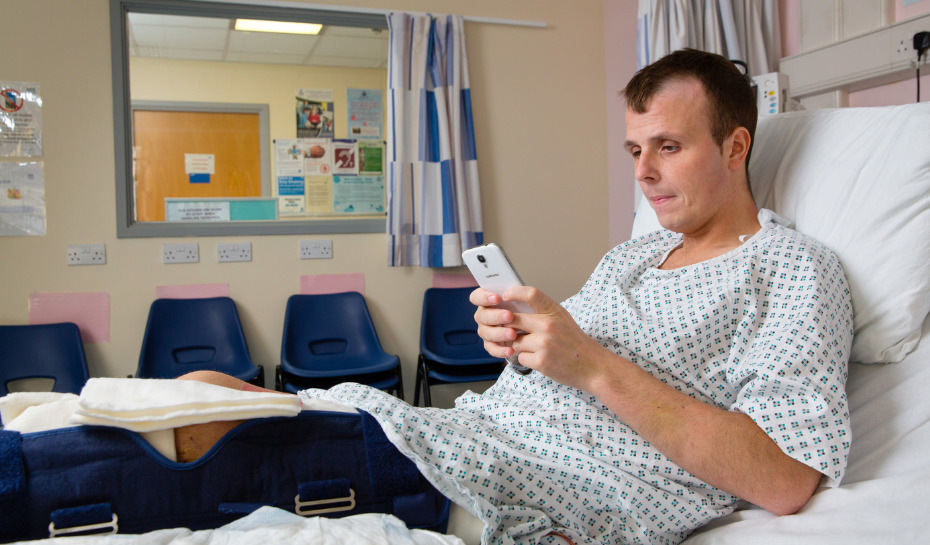18 May 2022
Reducing Inpatient Isolation During COVID-19
Tagged by
With the obvious medical challenges of COVID-19, come other emotional challenges which can leave patients feeling very vulnerable. Things like heightened anxiety from being in hospital during the pandemic, feeling isolated and cut off from loved ones while visiting restrictions are in place, or being in a strange environment with no access to activities or entertainment to stimulate your mind and provide a distraction, all take a psychological toll and can slow down recovery.
Since the outbreak of Coronavirus, technology has played an increasingly important role in supporting patient wellbeing. It has helped to reduce isolation, bolster mood, and alleviate some of the additional stresses and strains caused by the pandemic. It has served to both maintain connections between loved ones through virtual visiting and also provide distraction and entertainment when other ward-based activities could no longer take place.
Thanks to our generous supporters, we have been able to enhance patient experience and support wards across Edinburgh and the Lothians by funding additional technology such as tablets, holders, bluetooth earphones and speakers, TVs, DVD players, etc.
Here, Georgie Barrett, an activities coordinator in Pentland Ward at the Royal Edinburgh Hospital, explains how this technology has helped make things feel more normal for her patients during these unusual times.
“Pentland ward is responsible for the care needs for men with dementia who present with stressed and distressed behaviours. Due to the current COVID-19 pandemic, many activities and events usually held off the ward to fulfil the social and meaningful activity needs of the patients have been unavailable.
“During these challenging times, we needed to find other ways to provide the social and emotional connections that these activities would previously fulfil. We therefore looked at how technology could help fill this gap and applied to NHS Lothian Charity for funding through their COVID-19 Response Fund to help us buy equipment such as a TV stand, TV, DVD player, bluetooth headphones and bluetooth speakers. If the patients couldn’t go off ward to access entertainment, we would bring entertainment to them.
“Listening to music is a very therapeutic and meaningful activity for patients with dementia. Getting bluetooth headphones has enabled the patients to listen to their own Playlist for Life which is music personal to them. Bluetooth does not need cords to connect to any devices which can distract or present as a choking hazard. It also enables the patient to listen with less background noise and at an appropriate volume. The bluetooth speakers have also enabled patients to listen to music in a group setting with staff, as well as to use in the bathroom to play calming music to patients that display distress with personal care and showering needs.
“Having a portable TV stand with a Smart TV and DVD Player has also allowed the patients to watch movies in a reminiscence session, watch sports games and view online content such as live sessions of music with Capital Theatres or Music in Hospitals. These live sessions are events patients would usually go to in person but due to COVID they are now online. Being online also meant that an internet connection was needed so a replacement TV was bought to link up to the internet – which the old TV that we had on the ward couldn’t do.
“This new equipment has been vital in assisting us to better engage patients during the pandemic, effectively improve their daily moods and enhance their quality of life.”
Photo: Dr Elizabeth Wilson, ICU Consultant and Brenda Duncan, Charge Nurse in 118 with some of the additional technology that was funded at the Royal Infirmary of Edinburgh.
